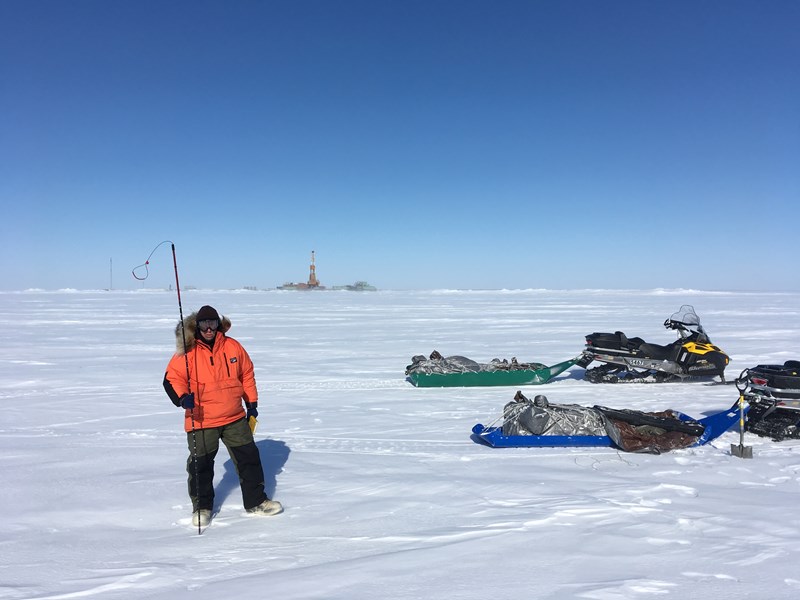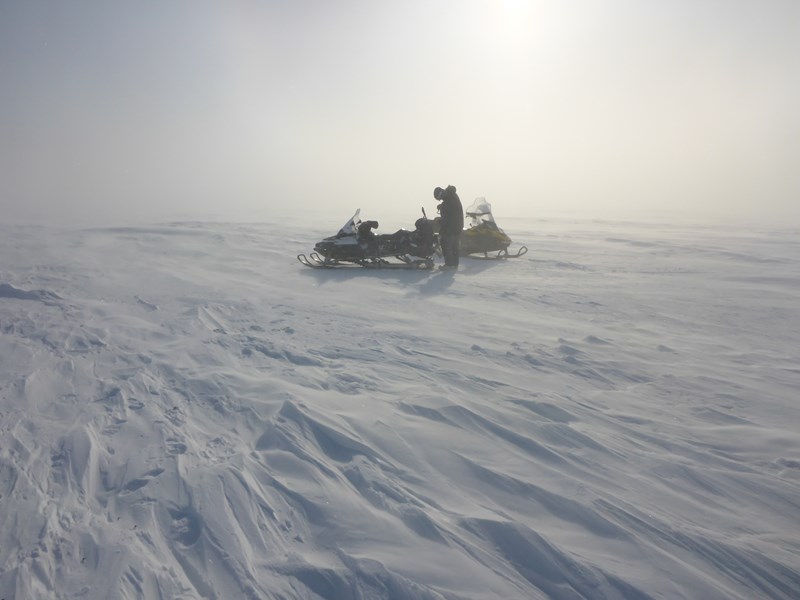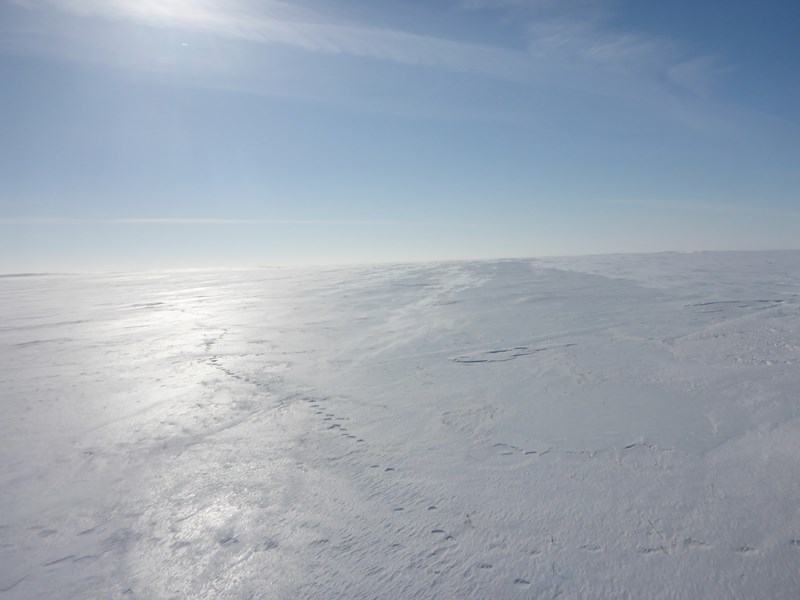- Dec 2
- Children of the Arctic
- Apr 18
- Snow, Wind, and Ice
- Apr 16
- Lesson from the Arctic
- Apr 14
- I Love Doing Science!
- Jan 28
- Bouncing Back in Whiteness
- Jan 27
- The Magical SAR Queen Rules!
- Jan 26
- Arctic Winter Science
- Jan 25
- A Day to Chill
4/18/2018
Me and Allen B. just completed an approximately 200 mi circuit: Teshekpuk Lake to Lower Fish Creek (near Nuiqsut) and then to Inigok and back to Tesh today. We started off in a side wind from the ENE as we rode ESE. Cold on left boot and body. The landscape had changed. It looked really different since ride we did in 2014 when it seemed like there was much more topography and exposed vegetation. Area seemed much flatter and filled in this time. Arriving, the new GMT1 oil rig was prominent.

Riding to Inigok was super smooth and cruising with the sastrugi drifts was fast. Into Inigok, we gassed up machines, recharged empty drums, and swapped Allen's ride for the Shaft. Next morning we hit 5 lakes to measure snow and ice thickness and also standard tundra survey. A bit thicker on lake where lakes were exposed to wind scour, but still very thin overall. The thing most striking about this trip is the lack of ANY exposed lake ice. It’s all snow covered and somewhat evenly. Even tundra has almost no vegetation sticking this deep snowpack.
Despite these observations, conditions this morning were brutal with an even stronger wind. At least 20 mph and blowing snow with very limited visibility. Seeing snow moving and building new drifts is instructive. Snow and wind regimes are critical in controlling ice growth. If snow falls during the early winter and doesn’t get blown right away, it collects, strengthens, and becomes deep on lakes, insulating ice from the cold air, and slowing its growth. Strong winds during snowfall, will keep lake ice clean and thickening fast. We're seeing the former case this year all over North Slope, but particularly along the coast. It’s the snow relative to the wind that controls the ice. And most everything up here!
